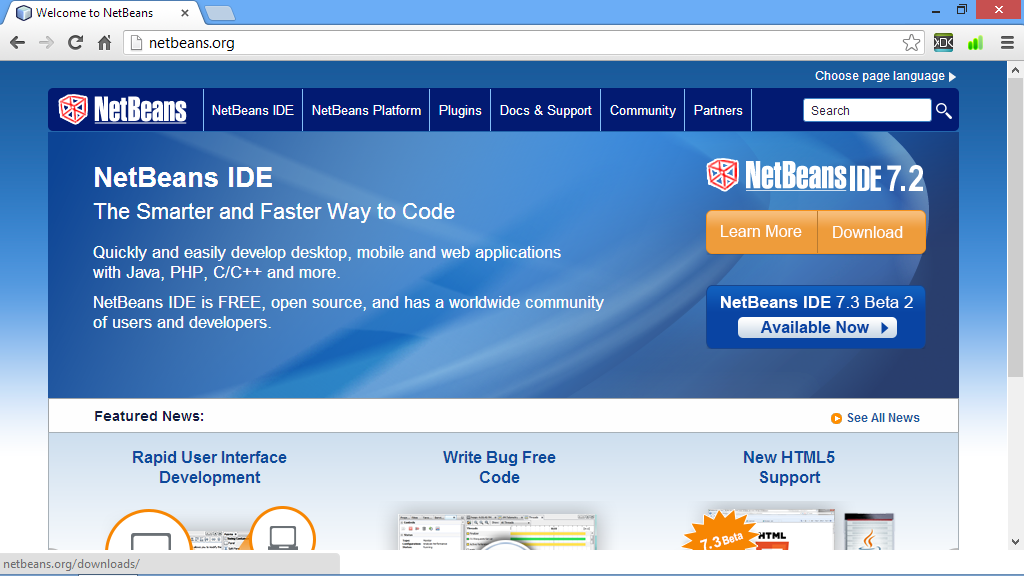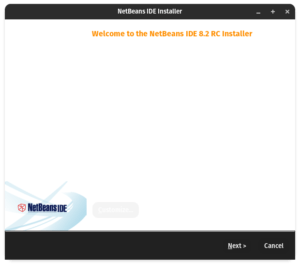
- Compatible jdk for netbeans 8.1 how to#
- Compatible jdk for netbeans 8.1 manual#
- Compatible jdk for netbeans 8.1 archive#
- Compatible jdk for netbeans 8.1 full#
Press to keep the current choice, or type selection number: 2
Compatible jdk for netbeans 8.1 manual#
* 0 /usr/lib/jvm/java-11-openjdk-armhf/bin/java 1111 auto modeġ /usr/lib/jvm/java-11-openjdk-armhf/bin/java 1111 manual modeĢ /usr/lib/jvm/zulu11.41.75-ca-jdk11.0.8-linux_aarch32hf/bin/java 1 manual mode There are 2 choices for the alternative java (providing /usr/bin/java). $ sudo update-alternatives -install /usr/bin/javac javac /usr/lib/jvm/zulu11.41.75-ca-jdk11.0.8-linux_aarch32hf/bin/javac 1Īt this moment we can select the new JDK to link it to the “java” and “javac” command. $ sudo update-alternatives -install /usr/bin/java java /usr/lib/jvm/zulu11.41.75-ca-jdk11.0.8-linux_aarch32hf/bin/java 1 Now we have the JDK11 ready to be used, but it still needs to be configured so the OS is aware of it. To get started with Zulu JDK, download and uncompress it to your board: $ cd /usr/lib/jvm But only Azul seems to have one which is a perfect fit for Raspberry Pi’s with an ARMv6: the Zulu community edition of JDK 11. Luckily there are different suppliers providing ready-made packages of the JDK for multiple platforms. The sources for Java are available as open-source on OpenJDK, which means, if you can’t find the correct version for a specific board, it is possible to compile it yourself. Model : Raspberry Pi Model B Plus Rev 1.2 Model name : ARMv6-compatible processor rev 7 (v6l)įeatures : half thumb fastmult vfp edsp java tls If you are not sure which type of board you have, you can check this in the terminal with cat /proc/cpuinfo,įor instance for a Raspberry Pi B+ 1.2: $ cat /proc/cpuinfo Server VM is only supported on ARMv7+ VFP On an ARMv6 version, you will get an error: $ java -versionĮrror occurred during initialization of VM OpenJDK Server VM (build 11.0.3+7-post-Raspbian-5, mixed mode) OpenJDK Runtime Environment (build 11.0.3+7-post-Raspbian-5) On a board with ARMv7 or ARMv8 you will get this result: $ java -version You can check the installed Java version in the terminal. If you prepared a microSD card with the latest version of Raspbian OS (full version), Java is already installed!
Compatible jdk for netbeans 8.1 how to#
How to check and install Java Check the current version In some cases you will need to do some additional steps to install a Java version which works But this version only works on board-versions with anĪRMv7 or ARMv8.

Compatible jdk for netbeans 8.1 full#
Netbeans_jdkhome="C:\Program Files\Java\jdk-9.0.Raspberry Pi OS Full comes with Java 11 pre-installed. Uncomment this line (remove the # character) and specify the full path to jdk, like this: Then go to the netbeans\etc\ folder and open the nf file with a text editor. To start, you need to unzip the downloaded archive. NetBeans, like any Java application, is a portable program.
Compatible jdk for netbeans 8.1 archive#
The download archive is called something like "NetBeans-dev-incubator-netbeans-linux-264-on-20171209-basic.zip".

you need to download a version for Linux even if you are going to run NetBeans 9 in Windows. To successfully use JDK 9, you need to download the NetBeans 9.0 development build from Apache Incubator.Īlthough the page says that there is a version for Linux and contains a link to the version for Windows, you need to download the archive from this page, i.e.

The version of NetBeans 8.2 is not designed to work with JDK 9 and does not support development on the ninth version of Java. NetBeans 8.2 IDE is not compatible with JDK 9.


 0 kommentar(er)
0 kommentar(er)
